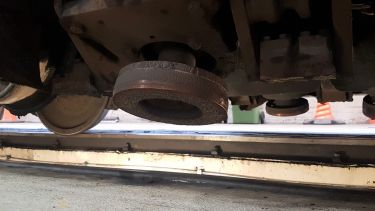Rail Surface Quality Improvements from Utilizing a Novel High Speed Superabrasive Grinding Approach
The University of Sheffield in collaboration with Network Rail, aims to initiate the implementation of an innovative grinding technique in railways to increase the efficiency and overall performance.

Rail grinding is a process that has been introduced to the industry relatively recently (1980s) without fully exploring its effect to the rail surface quality. Rail undergoes a grinding process to remove potential defects that appear during its life-cycle and to return its profile. This process involves high levels of stress applied to the rail material which can cause significant microstructural alteration. The transformed regions of material known as White Etching Layer (WEL) can affect the performance of the rail due to the irregular mechanical properties they bring about.
The project is mainly done experimentally by simulating the conditions to which materials are exposed in the field. In general, the project will allow studying the rail grinding and identifying possible gaps or problems within it. Consequently, high speed grinding technique is proposed as an alternative to the current process to increase the efficiency and overall performance.
The findings are fed directly back to the industry to aid in educating around the process and alternating grinding parameters if needed. The ultimate goal of the project is the establishment of a High-speed grinding technique as an alternative to the current process to increase the efficiency and overall performance. This will allow eventually the implementation of the technique into the field.
People Involved:
Michael Mesaritis
